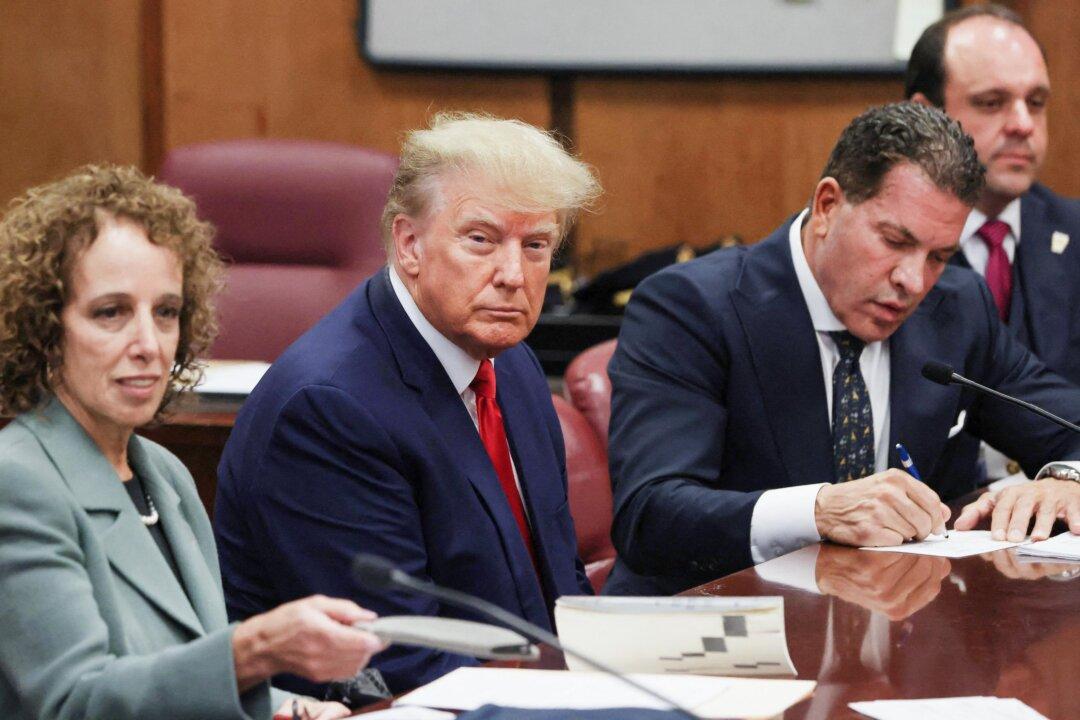Former President Donald Trump should go to trial in New York City in the 2016 election payment case, said Manhattan District Attorney Alvin Bragg in court papers filed Thursday.
“Defendant is alleged to have lied in New York business records over and over to conceal the truth about his involvement in an illegal conspiracy to undermine the integrity of the 2016 presidential election,” Mr. Bragg’s counsel, Matthew Colangelo, wrote in a partially redacted legal brief about the Trump case. “A grand jury decided based on the facts and the law to charge defendant with felony crimes for his conduct. This case should now proceed to trial,” he wrote.





